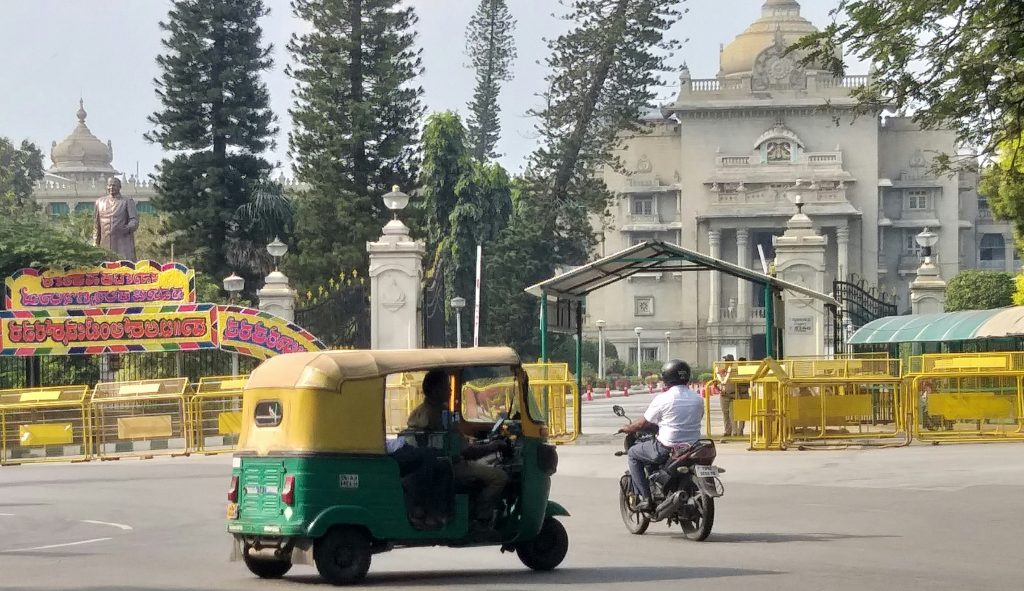Trump and Harris Prepare for Upcoming Debate Amidst Tense Political Climate
In a charged atmosphere ahead of the highly anticipated debate scheduled for September 10, former President Donald Trump has reaffirmed his commitment to face off against Democratic nominee Vice President Kamala Harris. This announcement comes after a period of uncertainty where Trump had previously hinted at withdrawing from the debate, raising questions about his strategy and readiness to engage with his opponent.
During an hour-long press conference at his Mar-a-Lago estate, Trump did not hold back in his criticism of Harris, referring to her intelligence in derogatory terms and labeling her as ‘barely competent.’ His remarks have sparked outrage among supporters of Harris, who argue that such language is unbecoming of a presidential candidate. The former president’s tendency to resort to personal attacks has been a hallmark of his political style, and this latest display appears to be no different.
Trump’s comments come at a critical juncture as both candidates ramp up their campaigning efforts. While Trump attempts to regain momentum in the polls, Harris and her running mate, Governor Tim Walz, are actively engaging voters in key battleground states like Michigan. Their campaign strategy seems focused on drawing contrasts between their vision for the future and Trump’s controversial tenure as president.
The upcoming debate is expected to be a pivotal moment in the election cycle, with both candidates looking to sway undecided voters. Political analysts suggest that Harris’s performance could prove crucial in reinforcing her position as a capable leader, while Trump must navigate the fine line between aggression and articulating his policies effectively.
As the debate approaches, the tension between the two campaigns is palpable. Trump’s recent press conference has only intensified the scrutiny on both candidates, with voters eager to see how they will handle the direct confrontation. The stakes are high, and both Trump and Harris must be prepared to address not only their political platforms but also the personal jabs that have characterized this election season.
As the political landscape continues to shift, all eyes will be on the debate stage, where Trump and Harris will have the opportunity to present their cases to the American public. With the election looming, the intensity of the campaign is likely to escalate, setting the stage for a fierce showdown that could determine the future of the presidency.
Tags: 2024 election, debate, Harris, Political Strategy, Trump, Trump press conference today
Kamala Harris Launches Bold ‘Republicans for Harris’ Initiative to Attract Moderate Voters
In a strategic move aimed at capturing the attention of moderate voters, Vice President Kamala Harris has unveiled her campaign’s ‘Republicans for Harris’ initiative. This innovative program seeks to engage disaffected Republicans, particularly those who oppose the polarizing figure of Donald Trump, and encourage them to consider supporting her presidential bid.
Launched over the weekend, the initiative has already garnered the support of more than 25 Republican politicians who have publicly backed Harris. This unprecedented cross-party collaboration signals a significant shift in the political landscape as Democrats aim to broaden their appeal beyond traditional party lines. Among the notable figures joining this movement is Christine Todd Whitman, a prominent Republican voice, whose endorsement could sway others in similar positions.
The Harris campaign is focusing its outreach efforts on critical battleground states such as Pennsylvania, where many Republicans feel alienated by the current direction of the GOP. Campaign organizers believe that by appealing to these individuals, they can not only bolster Harris’s chances in the general election but also redefine the Republican identity for those seeking a more moderate alternative.
Political analysts suggest that this initiative could be a game-changer in the upcoming election, especially given the current state of the Republican Party. With internal divisions growing and many Republicans dissatisfied with their party’s leadership, Harris’s campaign is tapping into a ripe opportunity to attract voters who are looking for change.
During a recent address at the American Federation of Teachers’ national convention, Harris emphasized the importance of unity and collaboration across party lines. She articulated a vision for a future where political affiliations do not dictate one’s values or priorities, stressing that her campaign is built on inclusivity and dialogue.
The ‘Republicans for Harris’ initiative not only aims to win over individual voters but also seeks to establish a broader coalition that can challenge the prevailing narratives within the GOP. By presenting herself as a candidate who values bipartisanship, Harris hopes to inspire a movement that transcends traditional political boundaries.
As the campaign unfolds, it will be interesting to see how this initiative evolves and whether it can successfully convert Republican skeptics into enthusiastic supporters. The Harris team is optimistic that their message of hope and progress will resonate with those feeling disenfranchised by the current GOP.
In conclusion, Kamala Harris’s ‘Republicans for Harris’ initiative represents a bold strategy to reshape the political landscape ahead of the upcoming election. By actively seeking the support of moderate Republicans, Harris is not only challenging the status quo but also inviting a broader audience to join her vision for America. As the campaign gains momentum, it could redefine how candidates approach cross-party alliances in future elections.
Tags: cross-party support, moderate voters, Political Strategy, Republicans for Harris
Minnesota Governor Tim Walz Emerges as a Contender for Vice President
In a surprising twist in the political landscape, Minnesota Governor Tim Walz has significantly increased his chances of being selected as Vice President, particularly as discussions around Kamala Harris’ potential running mate heat up. This development comes on the heels of some pushback faced by Pennsylvania Governor Josh Shapiro, who was initially considered a front-runner for the position. As the political climate shifts and new alliances are formed, Walz’s rising profile reflects a broader strategy within the Democratic Party to consolidate support ahead of the upcoming elections.
Analysts suggest that Walz’s experience as a governor, combined with his strong leadership during challenging times, makes him an attractive candidate for the vice presidency. His administration has focused on key issues such as healthcare, education, and economic recovery, resonating well with a diverse voter base. This makes him a strong ally for Harris, who is looking to bolster her ticket with a candidate who can appeal to a wide range of demographics.
Moreover, Walz has been vocal on issues of social justice and climate change, aligning with the progressive wing of the party. His advocacy for policies aimed at addressing these urgent matters has earned him respect and support from grassroots activists, further solidifying his candidacy.
As the race for the vice presidency intensifies, the focus is not only on the candidates’ political records but also on their ability to connect with voters on a personal level. Walz’s approachable demeanor and genuine commitment to public service are qualities that could resonate well with the electorate.
With the Democratic primaries approaching, the party’s decision-makers are keenly observing how potential candidates can influence voter turnout and party unity. Walz’s elevation in the betting odds signals a shift in perceptions, suggesting that he may be viewed as a stabilizing force for a ticket that aims to address both immediate concerns and long-term goals.
As the political landscape evolves, the stakes are high for all potential candidates, and the selection of a running mate could play a crucial role in shaping the Democratic strategy for the upcoming elections. With Walz now in the spotlight, political observers and party insiders alike are eager to see how this development will unfold in the coming weeks.
The implications of this scenario extend beyond just the individuals involved; it reflects the broader dynamics of the Democratic Party as it seeks to navigate the complexities of a changing electorate. As candidates position themselves for the vice presidency, the focus will remain on their ability to forge connections and inspire confidence among voters. As the clock ticks down to the elections, every move will be scrutinized, and the race to the nomination will only grow more intense.
Tags: Political Strategy, Vice President, Walz



